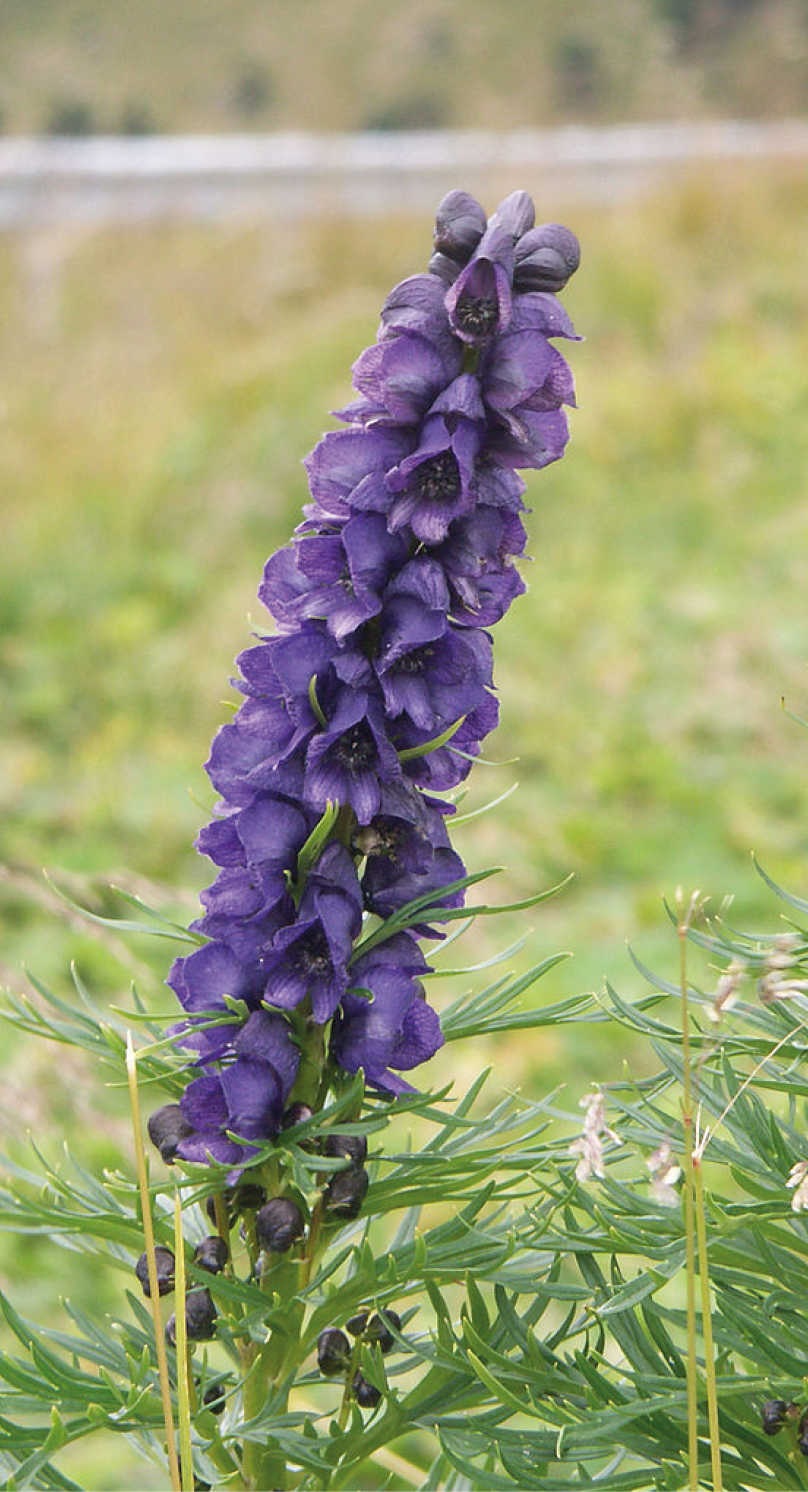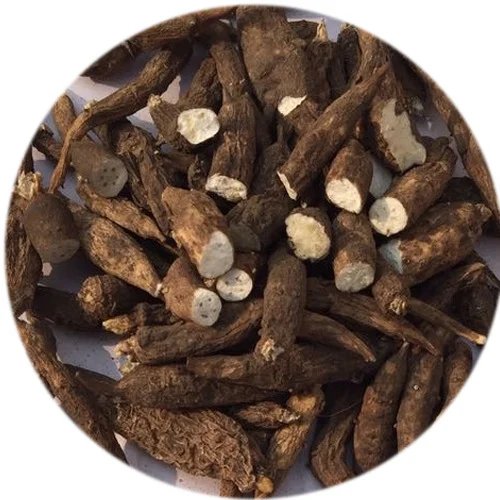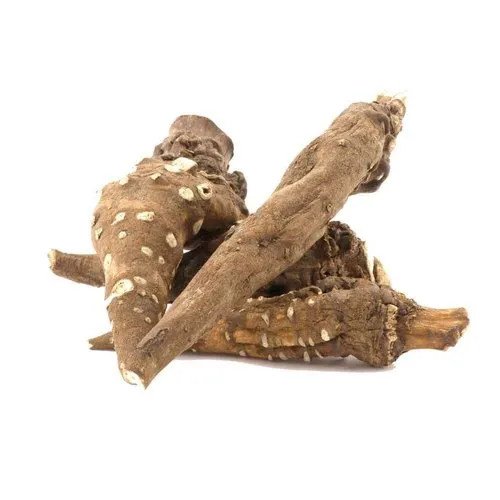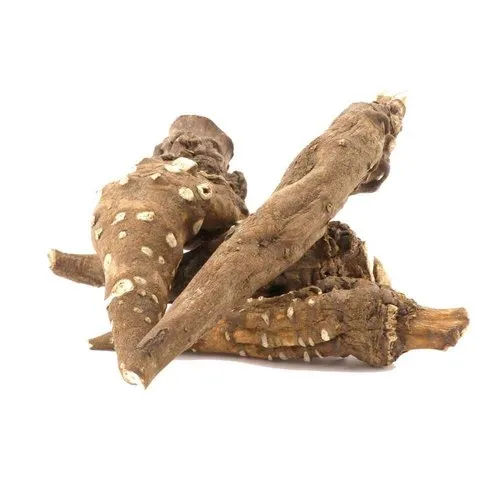INTRODUCTION

English name: Atis root or Aconite root
What is Aconite?
These perennial plants grow to a height of 0.6 to 1.5 m and resemble delphiniums. Aconite has characteristic helmet-shaped blue or purple flowers. Occasionally, the flowers may be white, pink, peach, or yellow. More than 100 species of Aconitum are found throughout the temperate zones of the United States and Canada. These plants also are found throughout many parts of Asia, Africa, and Europe. They contain poisonous alkaloids such as aconitine.
Medicinal Use
Beekh Badhara (Aconite Root) is a medicinal herb used traditionally for its healing properties. The roots are primarily used in herbal formulations for treating digestive issues, fever, respiratory conditions, and inflammatory disorders. Beekh Badhara is known for its anti-inflammatory, antipyretic (fever-reducing), and digestive stimulant properties. However, it should be used cautiously, as Aconitum species can be toxic in high doses.
Forms
Atis root (Beekh Badhara or Aconitum heterophyllum) is available in several forms for medicinal use:
- Raw Dried Root: The dried root is commonly used in traditional medicine. It can be ground into powder or boiled for making herbal remedies.
- Powder: The dried root is often ground into a fine powder, which can be mixed with water, honey, or milk to be consumed for various ailments.
- Capsules/Tablets: Standardized Atis root extracts are available in the form of capsules or tablets for easy consumption, often recommended in Ayurvedic medicine.
- Decoction: Atis root is boiled in water to create a medicinal decoction, which is used to treat digestive issues, fevers, and respiratory conditions.
- Paste: The powdered form can also be mixed with water to create a paste, which is sometimes applied externally for pain relief or inflammation.
- Ayurvedic Formulations: Atis root is commonly found in many Ayurvedic formulations like Churna (powder), Kwath (decoction), and herbal syrups, designed for specific health benefits.
- Tincture: In some practices, Atis root is soaked in alcohol to make a tincture that can be used in small doses for medicinal purposes.
Health Benefits
The root of Aconitum heterophyllum (Atis or Beekh Badhara) has several health benefits, particularly in traditional Ayurvedic medicine. Here are its key health benefits:

Digestive Health
Atis root is highly regarded for improving digestion. It works by stimulating the digestive system, helping to relieve conditions like indigestion, diarrhea, and dysentery. It acts as a natural digestive tonic and is often prescribed for gastrointestinal discomfort, especially in children.
Antipyretic (Fever Reducer)
Known for its fever-reducing properties, Atis root is used to treat fevers caused by viral infections, flu, or even malaria. It helps reduce body temperature by acting on the body’s thermoregulation process, making it an effective remedy in febrile conditions.
Anti-Inflammatory
The root possesses anti-inflammatory properties that make it useful in treating conditions like arthritis, joint pain, and other inflammatory disorders. By reducing inflammation, it also helps alleviate pain and swelling in affected areas.
Respiratory Health
Atis root is commonly used to treat respiratory issues such as coughs, colds, asthma, and bronchitis. It helps soothe the respiratory tract and reduce symptoms associated with upper respiratory infections. Its expectorant properties make it beneficial for clearing mucus from the airways.
Boosts Immunity
The root is known for strengthening the immune system, helping the body fend off infections. Regular use in controlled doses may improve overall immune function, making it a popular remedy in traditional medicine for enhancing resilience against illness.
Anti-Parasitic

Atis root has anti-parasitic properties, making it effective in treating intestinal worm infections. It helps eliminate parasites from the digestive tract, supporting intestinal health.
Children’s Health
In traditional Ayurvedic practices, Atis root is often prescribed for children, especially to treat fevers, digestive issues, and respiratory conditions. However, it is used in very small, regulated doses due to its potency.
What is the recommended Dosage?
Extreme caution is required. Fresh aconite is extremely toxic, and safe dosage is dependent on processing. Many species are used medicinally in China only after processing. Traditional Western texts recommended 60 mg of the root per dose.
Side Effects
Atis root (Beekh Badhara or Aconitum heterophyllum) is generally considered safe in small, regulated doses, but it can have side effects if used improperly or in high amounts. Here are some potential side effects:

- Toxicity
- Allergic Reactions
- Low Blood Pressure
- Nervous System Effects
- Interaction with Medications
- Pregnancy and Breastfeeding Risks




